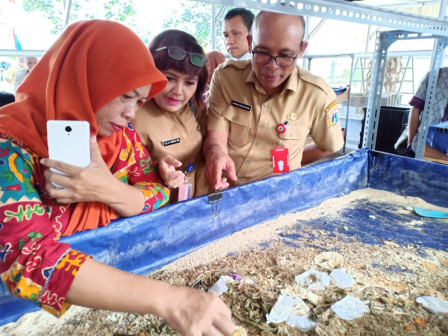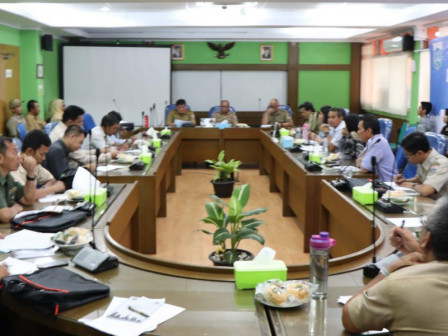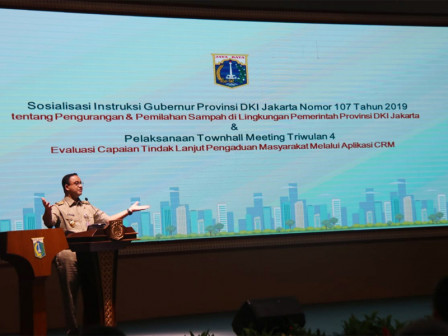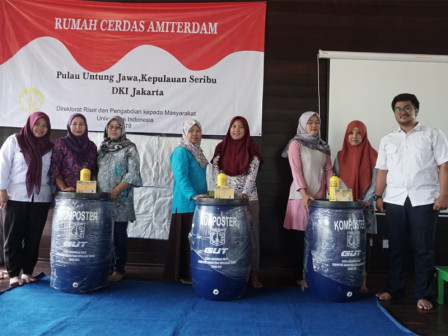Manggot Cultivation Developed in Central Jakarta for Waste Reduction
Reported by Bimo Setiyadi | Translated by Nugroho Adibrata
This is effective method, we want to develop it in Central Jakarta
The Central Jakarta administration has inaugurated the maggot house under the railway tracks, Gondangdia Urban Village, Menteng Sub-district. Maggot or larvae are deemed capable of reducing waste.
Assistant for Central Jakarta Administration's Economy and Development Bakwan Ferizan Ginting said the Menteng Sub-district Community Care Forum (Formapel) innovation about the method of reducing rubbish with maggot must be developed.
West Jakarta Intensifies Waste Reduction Program in SchoolsThis method can significantly reduce waste, especially wet waste. Based on the data, waste reduction in Central Jakarta hits 11 percent and there are still nine percent reduced.
"This is effective method, we want to develop it in Central Jakarta," he stressed, Tuesday (1/21).
The innovation would be developed simultaneously to the waste banks, the Child-Friendly Playground (RPTRA), each sub-district, urban village and RW.
"It is very effective in a residential area. We will continue to facilitate, we see it has been very successful," he uttered.
Menteng Sub-district Formapel Chairman Hendra Kurnia expressed maggot caterpillar cultivation has been running since two months ago.
"This is pretty effective, 10 kg of maggot can finish 30 kg of organic waste within 24 hours," he explained.
Besides reducing waste, maggot eggs can also be sold.
"Maggot larvae can be used for animal feed, dry processed larvae can be used for chicken pellets, while maggot manure can be the best fertilizer for conventional plants," he stated.





